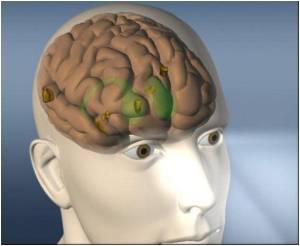The amygdala, especially the basolateral division (BLA), has been implicated in both decision-making and social perception.

‘The fear center of the brain called as amygdala may also play a critical role in determining the level of kindness, sharing and co-operation.’





He explained that the amygdala region of the brain determines the level of social behavior that includes, sharing, kindness, co-operation etc."The amygdala, especially the basolateral division (BLA), has been implicated in both decision-making and social perception, inviting the possibility that it contributes to decision-making with respect to others," said Platt.
He added, "This set of nuclei is well known for contributions to emotional experience and expression, especially fear. More recent studies demonstrate activity in BLA tracks the value of rewards and punishments, predicts risky financial decisions, reflects internal motivational goals, and correlates with vigilance and attention."
There was an actor monkey and a recipient monkey — actors learn different-colored shapes are associated with a reward (a squirt of juice); one they can give to themselves, a neighboring monkey, or to no monkey at all.
"When people inhale oxytocin, there is a change in blood flow to the amygdala, which we think might be involved in making people kinder and more receptive to others," Platt said.
Advertisement
He concluded, "What we're trying to do is both identify and understand the basic brain mechanism that allows us to be kind to each other and to respond to the experiences of other individuals. We're also trying to use that knowledge to evaluate potential therapies that could improve the function of these neural circuits, especially for those who have difficulty connecting with others."
Advertisement














